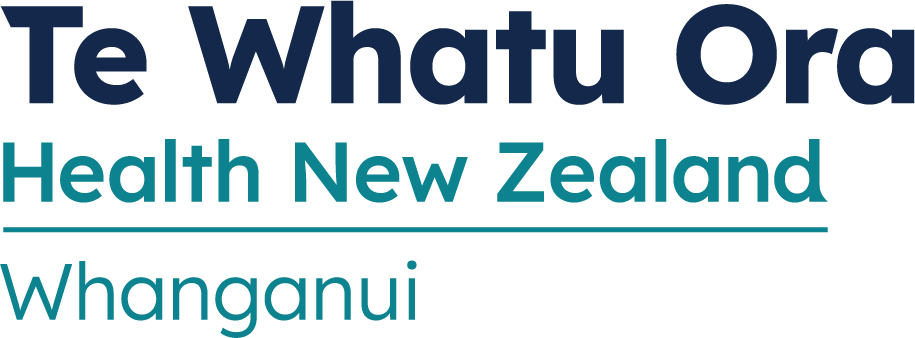

Get yourself checked out is the message from ‘Blue’ Davies
09 July 2020
‘Blue’ Davies is a fit-looking 61-year-old who loves life, plays “a mean game of golf” and still enjoys a good party.
But, with a rueful smile, he tells you: “I shouldn’t be here – I’m lucky to be alive.”
‘Blue’ – 27-year New Zealand Army veteran Thomas James Davies – came through deployment in Bosnia and the Middle East … and he has also survived bowel cancer, the second biggest cancer killer in NZ, claiming 1200 Kiwi lives every year.
And after his brush with death, he is keen to spread the message about the importance of doing the bowel screening test.
“If you want to see your kids and grandkids grow up, you’ve got to look after your health. If you love your family, get checked out.”
‘Blue’ was relaxing in his Whanganui home back in January 2011 when a public health message came on the TV listing the symptoms of bowel cancer.
“And I had three or four of them,” he says.
“That was the beginning of quite a journey.”
But it was a journey he was determined to take – “I had kids and a wife; I had to do right by my family.
“What was the alternative – terminal; dead in nine months.”
‘Blue” had been getting a lot of pain “back there” and he was really sore when he went to the toilet. “Plus there had been a change in my bowel motions.”
A visit to the doctor was followed by a colonoscopy at Whanganui Hospital.
“When the doctor first told me I had cancer, I didn’t know what to say … I just walked out. I sat in the car in the car park with my wife Louise and I just burst into tears – I was only 50 years old.
“Louise went straight back in and started asking questions and taking notes.”
While ‘Blue’ reckons he is lucky to still be enjoying life, he was unlucky in that his cancer was in a spot on the bowel that made treatment difficult.
Two months after diagnosis he had a week’s radiation therapy in Palmerston North and then a seven-hour operation in Whanganui to remove the bowel completely.
“If you get diagnosed early, they can cut out the cancer. I was unlucky in that it was in a place where they couldn’t just cut it out, so they had to take out my whole lower bowel. But I’m happy – I’m alive.”
He has learnt to live with the inconveniences of not having a bowel and, though classing himself as “semi-retired”, he has followed his career in the army and in Corrections (as well running a military academy at City College) by now working as a wool bale tester for Elco Direct, one of the largest wool buyers in New Zealand.
And he does not hesitate to tell his workmates that they need to be proactive about their health and to take advantage of services like the National Bowel Screening Programme which provides test kits for men and women aged 60 to 74 years to take a sample at home.
“Yes, men don’t like talking about this kind of thing; don’t like facing up to it, but I say to them: ‘Go and talk to your doctor about it -- take your mana off at the door and pick it up on the way out’.
“Get over the fact that it’s in a private place – do the right thing.
“I tell them all to get checked out and some of them are now doing that regularly.”
‘Blue’, who also survived liver cancer, knows that if he hadn’t had a check-up he would have missed his boys 21st birthdays and his two grandkids growing up.
“My boys and Louise have been rocks – it can be a hard road and you need family support. But I’m still here, and I enjoy life.”
More information:
Whanganui District Health Board’s bowel screening programme – launched last October -- has kicked back into action following lockdown.
The latest figures show, on average, one person in the Whanganui District Health Board region diagnosed with bowel cancer each month, and five identified as being at increased risk of cancer.
The Whanganui team is pleased to report that overall participation in the programme is above 60 per cent, with Māori and Pacific participation currently at the same rate as other ethnicities.
Participation for men is currently 5 per cent lower than women and work will be done to encourage men to complete and return their test kits.
Figures to the start of July are that 3600 bowel screening test kits have been sent out in the DHB region, with 115 positive test results. A positive result does not necessarily mean someone has cancer, but means further investigation is required. Whanganui has had 89 bowel screening colonoscopies performed, and seven cancers detected with 35 people referred for ongoing surveillance colonoscopy.
The programme is fully operational again after being put on hold during the lockdown period, so anyone who has received a test kit and hasn’t yet completed and returned it, is encouraged to do so as soon as possible. Due to COVID-19, eligible people will now be sent kits within four months of their birthday over a two-year cycle.
The screening programme is for men and women aged 60 to 74 years who are sent an easy-to-use test kit in the post. The simple test is done at home, and it detects minute traces of blood in a sample of faeces (poo) which can be an early warning sign for bowel cancer. The sample is posted off and checked.
Screening every two years can save lives by finding the cancers early when they can often be successfully treated. People who are diagnosed with early stage bowel cancer, and who receive treatment early, have a 90 per cent chance of long-term survival.



